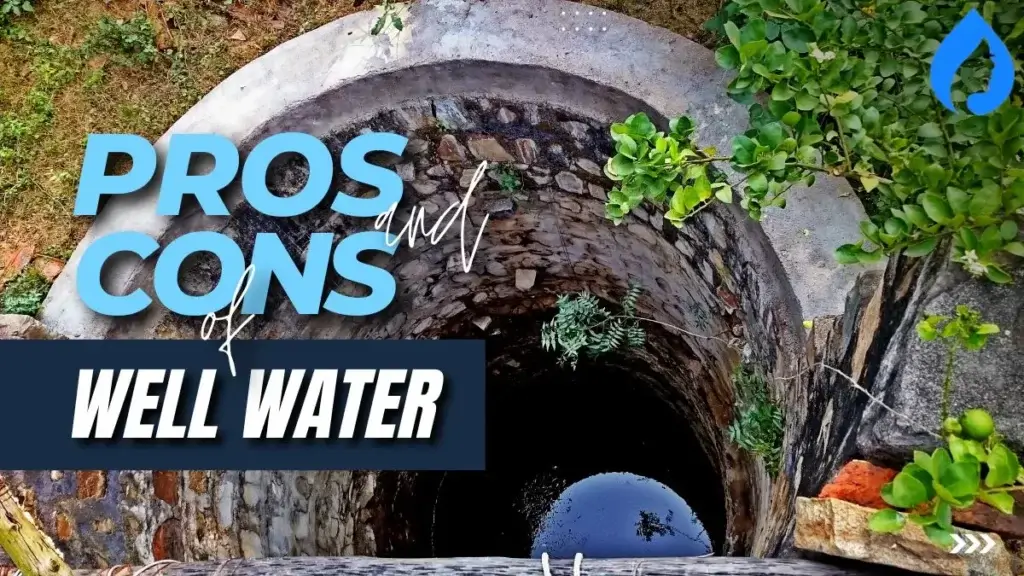
EPA estimates that about twenty-three million households depend on privately built wells to obtain their drinking water.
If you are sick with the odor, taste, or appearance of your municipal city water and have time and capital to build a private well close to your house, you can go for the well water supply.
However, if you are satisfied with the city water that comes to your home and don’t want to put effort into settling a well, it’s better not to shift to the well water supply.
Continue reading for an in-depth audit on the pros and cons of well water and all the head-on comparisons between well and city water.
What Are The Advantages Of Well Water?
The pros of having well water based on different factors are:
Economic Advantage:
There is a monetary benefit to building wells. However, this advantage is partly applicable.
No Water Bills:
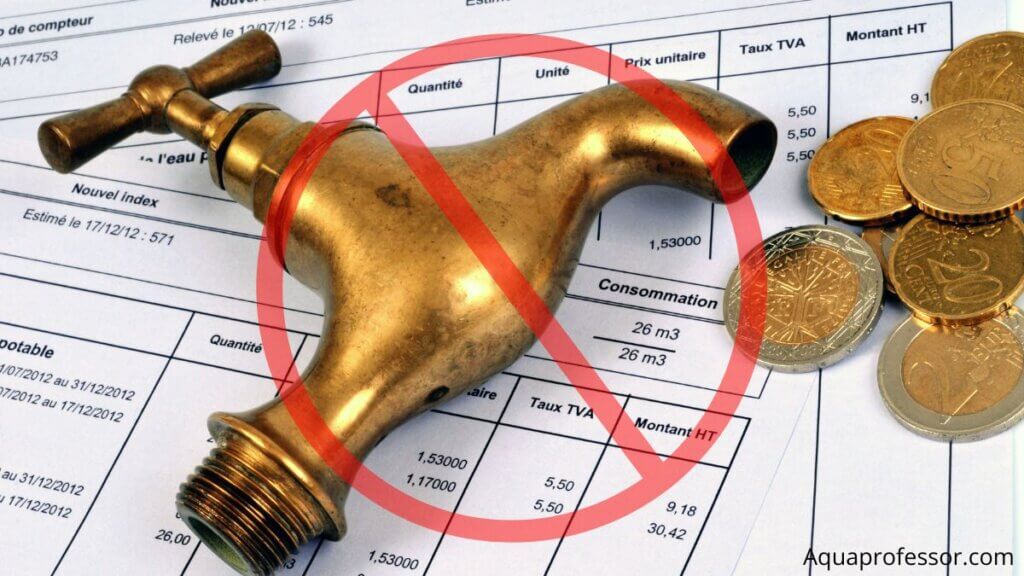
With wells near your residence, you will receive no water bills. However, you must pay the electricity bills to operate the well’s pump.
Water Quality Advantage:
The quality of the well’s water is far better than city tap water. The taste of well water is much better than the water supplied by the city’s municipality and has a soft and fine texture.
When my relative previously made use of city water, chlorine chemicals dried out his hair and skin. But, thanks to the well’s water, his hair and skin have turned smooth again.
Besides, city water sometimes gives a strong odor of chlorine because of the water’s treatment process for eliminating bacteria and other microorganisms. Therefore, erecting a well will save you from such issues.
Water Is Rich In Minerals:
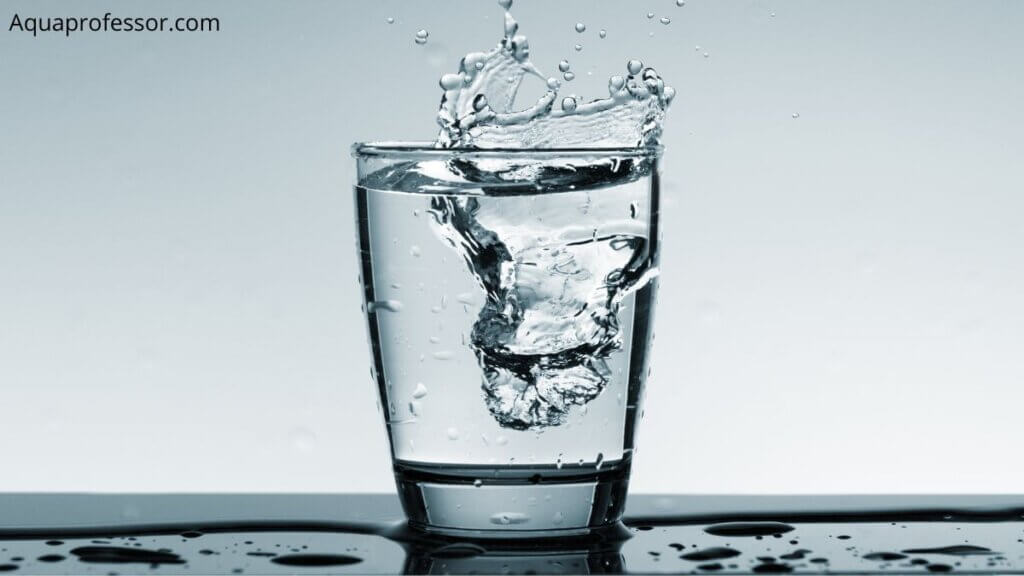
Well water is free of all chemicals and has a sufficient quantity of minerals directly from the groundwater aquifer. However, it would be best to regularly test the well to ensure its water doesn’t contain bacteria or other microorganisms.
Also Read: 6 Reasons Why My Well Water Is Yellow
No Water Supply Disruptions:
Be it any town or city, one frequently confronts municipal water supply cut-offs that halt household chores and impacts well-being. However, with well, you’ll have no such worries. Whether natural disasters or any other emergency, your well’s water will always be there for your service without mass flooding or water shut-off.
Other Advantages:
My research confirms that, besides the above advantages, well water has some other advantages, like:
Property Value Appreciation (If You Live In An Area With Frequent Municipal Water Supply Disruptions):
Constructing a private well near your house, especially if you and the people of your area are going through frequent disturbances in the city’s water supply, will increase your property value as it’s a reliable water supply source that reduces monthly expenses.
Personal Preference:
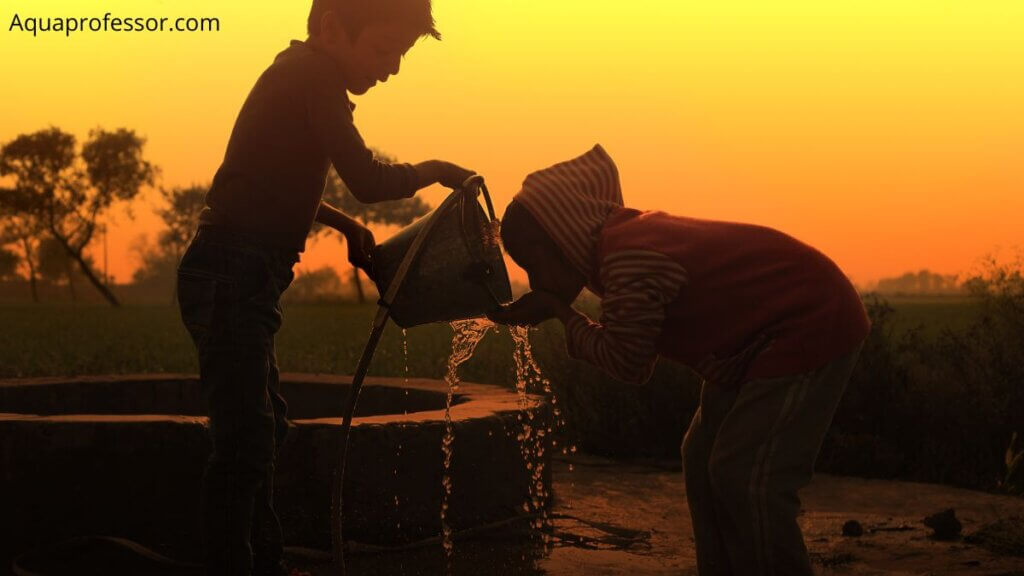
Many people prefer city water to well water. But, building a well close to your house will allow you to get water in case your municipal water supply fails.
Also, you can sometimes use the well’s water (and not the city water) for the things you want to do as your personal preference.
With a well, you will have another option at your hand for obtaining water other than city tap water. Moreover, wells offer rural connections with an endless water supply and go life long (at least 20 to 30 years).
Also Read: How Deep Should A Well Be For Drinking Water?
What Are The Disadvantages Of Well Water?
Here we explain all cons of the well water supply in detail:
Economic Disadvantage:
You know that a well’s water supply is cost-effective as it saves your water bill costs. But what if any damage occurs to the water pump?
Also, what about the high electric bills of the well’s pump, its maintenance costs, water testing, and water supply evaluation costs? These are hefty expenditures that can easily surpass water bill savings.
Full Responsibility For Fixing Damage:
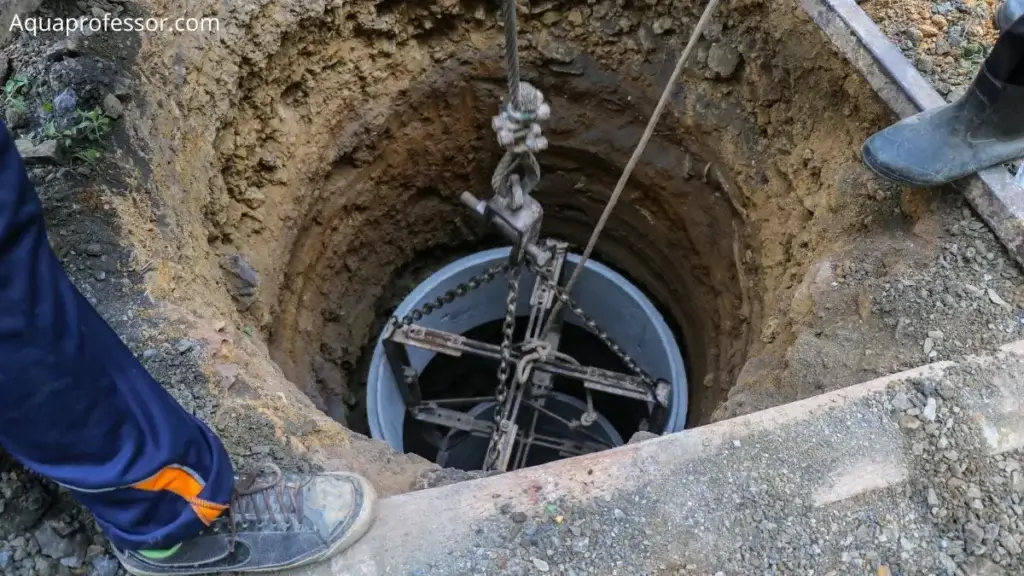
With well water, you must take full responsibility for fixing the damage to any part of your well or its machinery (such as the pumping system) and have to spend on maintenance. Also, if your well gets contaminated or empty, you will be solely responsible for testing and fixing the problems.
High Electric Bills Due To Water Pump:
If you use an electric water pumping system in your wells, prepare to see hefty figures in your electricity bills. Want to go for the hand-pumping option? That, too, needs a sizable one-time investment, let alone the tediousness of drawing water from a hand pump.
Either way, wells need regular maintenance, and there are no city water authorities to bear the cost or take the effort on your behalf. So, you have to spend the required amount for it by calling a professional expert yearly, as an upkeep cost.
Furthermore, electric pumps will not work during power cuts. Of course, you can use a generator to solve the problem, but what if the blackout is prolonged?
Well Water Testing And Water Supply Evaluation Cost:
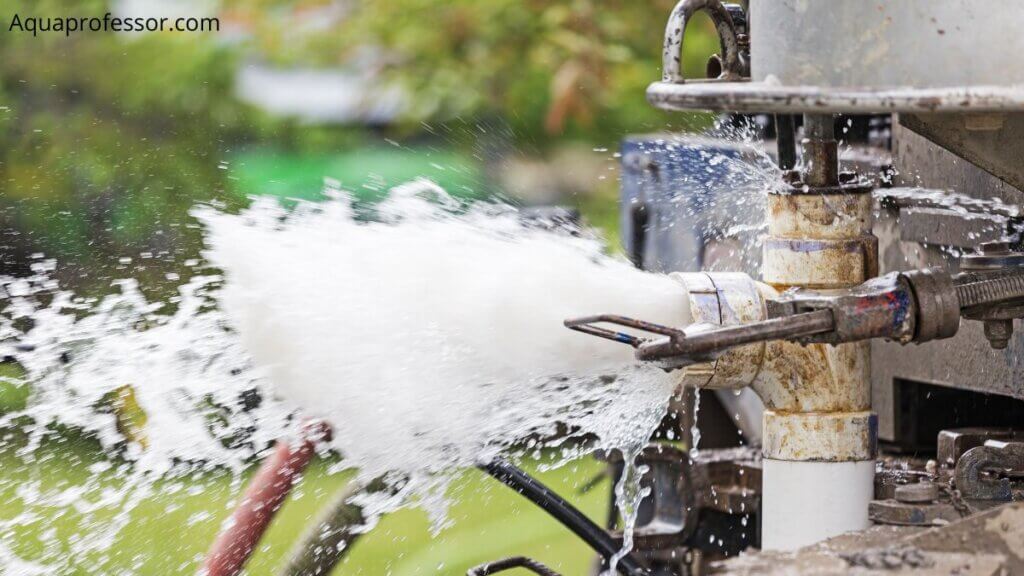
Well-water testing is regularly required to protect you and your family from bacteria or microorganisms.
So, if you have built a well beside your house or are newly moving into a house with a well situated close to it, testing the well’s water and evaluating the water supply is mandatory. This, again adds to the expenditure.
Additionally, after the first testing, you must keep on testing the well periodically to ensure it’s non-contamination from bacteria/microorganisms.
Water Quality Disadvantage:
Though there are certain privileges of well water over city water in terms of the water quality (for example- well water has natural minerals), some issues regarding the quality of well water have also been found. They are-
Risk Of Contamination:
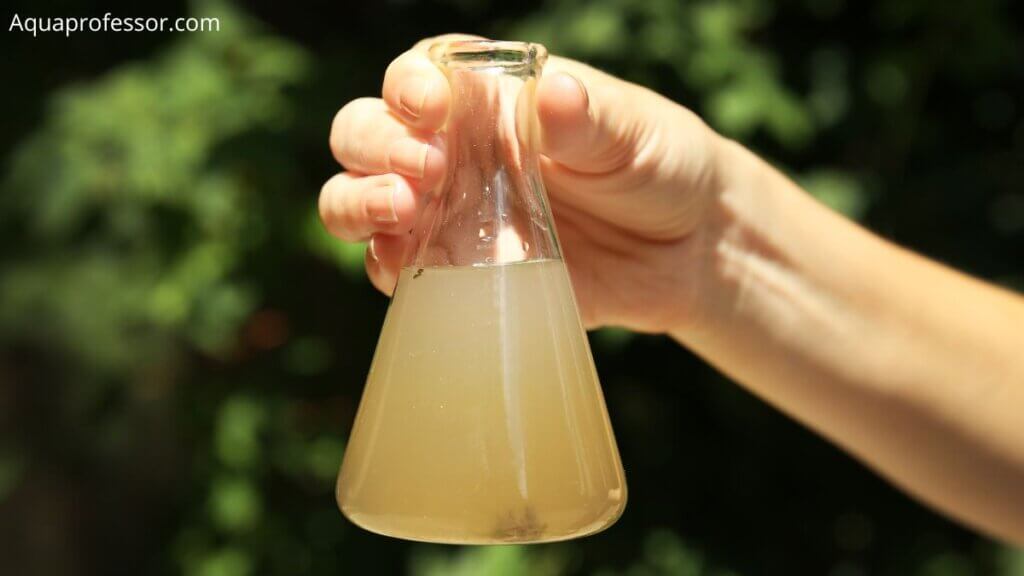
The high quantity of minerals can have various unpleasant side-effects like
You may install a softener or a house filter system to solve this problem. Besides, city or municipal water is treated with chlorine and is ensured that it is free of all contaminants as per EPA quality guidelines.
However, since no chemical treatment is done in well water, there’s a risk of bacteria and other contaminants (pollutants that make their way into the well or pumping system). To solve this problem, regular testing of water is necessary.
Possibility Of Water Hardness:
Water hardness is caused by high mineral content in well water, such as iron, calcium, magnesium, or other heavy metals. Hard water is proven to cause health effects, making cooking and washing clothes difficult.
If you detect the well supplying hard water, you have to install a water softener to solve it, which has its initial and periodic costs.
Also Read: Do You Need Water Softener With City Water?
Possibility Of Well Running Dry:
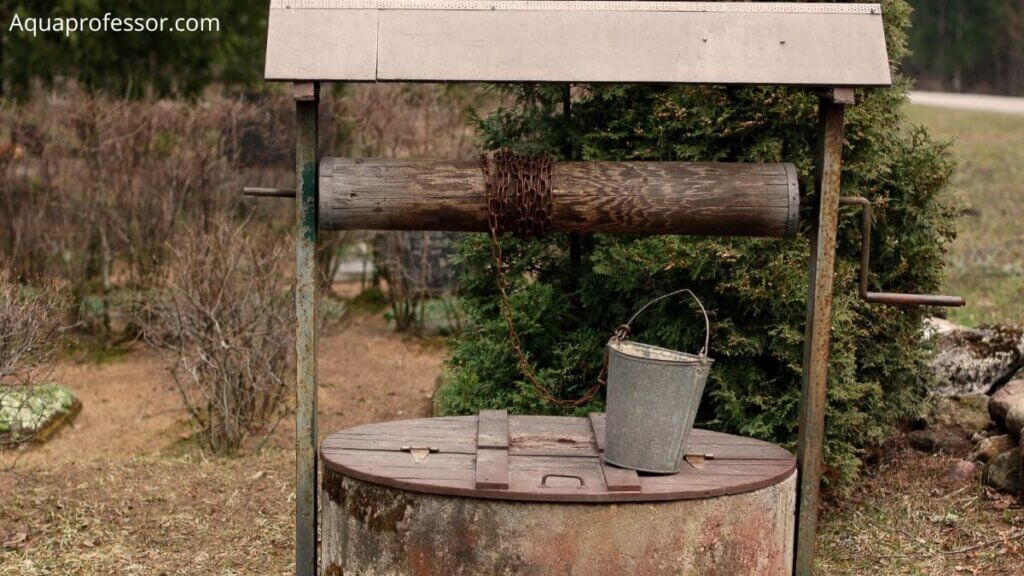
Decreased water levels in your well may eventually make the water of the well dry out. Your well may run out of water, resulting in reduced water pressure, faltering faucets, and sediments in the water.
Your septic systems tank may also fail, contaminating your well water (that comes from the ground) and nearby water bodies. Dry well cases have increased catastrophically in recent years, and you will be solely responsible for fixing the tank of your septic system and recharging your well in such a scenario.
Other Disadvantages:
Other disadvantages of well water include-
Can’t Flush All Waste With Septic:
Many people have a septic system near their well close to their house. A well cannot flush out all the wastewater from the septic system tank, resulting in water contamination in the well. Therefore, it may lead to many health hazards.
Also Read: Best Water Softeners For Septic Systems
Lifestyle Change Needed For Well Water Usage:
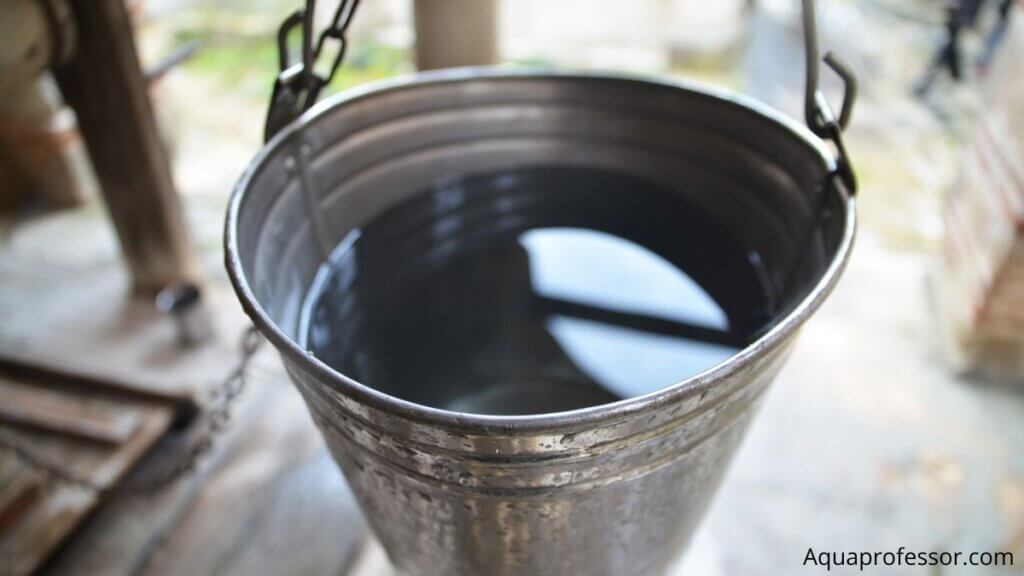
If you have been using city water for a long time, you need some lifestyle changes to adapt to well water usage. For example, before brushing your teeth with well water, you mustboil the water for at least five minutes to remove the bacteria present inside it or install a whole house water filter at your house.
Installing a filtration system in your house will leave you with no worries as it saves you from bacteria and other contaminants.
Legal Formalities Of Getting Septic Permits And Paperwork:
To erect a well near your house, you must obtain septic permits from local bodies, which will involve tiresome paperwork.
Well Water vs City Water: Pros and Cons
| Parameters | Well Water | City Water |
| Cost | No water bill but considerable electricity cost due to water pump usage. The considerable cost of maintaining it. | Rising monthly water bills. Less cost of maintenance |
| Quality of Water | Rich in minerals but the risk of contamination and water hardness | Less clean than the water coming from the city’s municipality and risk of widespread contamination |
| Water supplied | You are in control but must bear the costs of maintaining and repairing it. | You are not in control of the water supplied to you. |
In the well water vs. city water contest, we can conclude that both the local municipality city water and the well water (especially seen in rural areas) have their own advantages and disadvantages. Your choice of water supply will depend on your preference and the geology of the place where you live.
If you are thinking of switching from city water to a well water system, you must follow the following steps:
Also Read: 5 Best Arsenic Filters In 2022
Well Water Pros and Cons: FAQs
Lets look at some commonly asked questions related to the pros and cons of well water.
What does it mean to use well water?
Using water from a well (especially in a rural area) means receiving the water supply from a closely situated private well system and utilizing it for bathing, cooking, drinking, or other water-related activities.
Does EPA regulate private well water supply?
No, EPA regulations, known for protecting the drinking water systems of the public, don’t regulate the supply of privately owned well water. So, the private well owners must take responsibility to ensure that their water doesn’t contain any contaminants. They are responsible for the safety of their well’s water.
How many houses can be on one well?
One well is enough to serve water to at least two houses in an area. However, you can set up a community well to serve more than 4 houses in a locality.
What is the life expectancy of a well?
The life expectancy of a well is approximately 20 to 30 years.
Does well water need a filter?
Yes, water from the well may comprise bacteria, high levels of iron and manganese, and other contaminants. So, to get rid of them, cleaning water is necessary. Therefore, you must filter the well water before drinking it.
Adarsh is a Health & Nutrition Sciences graduate with expertise in environmental health. He is associated with ventures like Glacier Fresh Filter and Simpure Filter Systems. Through Aqua Professor, he intends to provide helpful information to every home to help them make smarter decisions.
